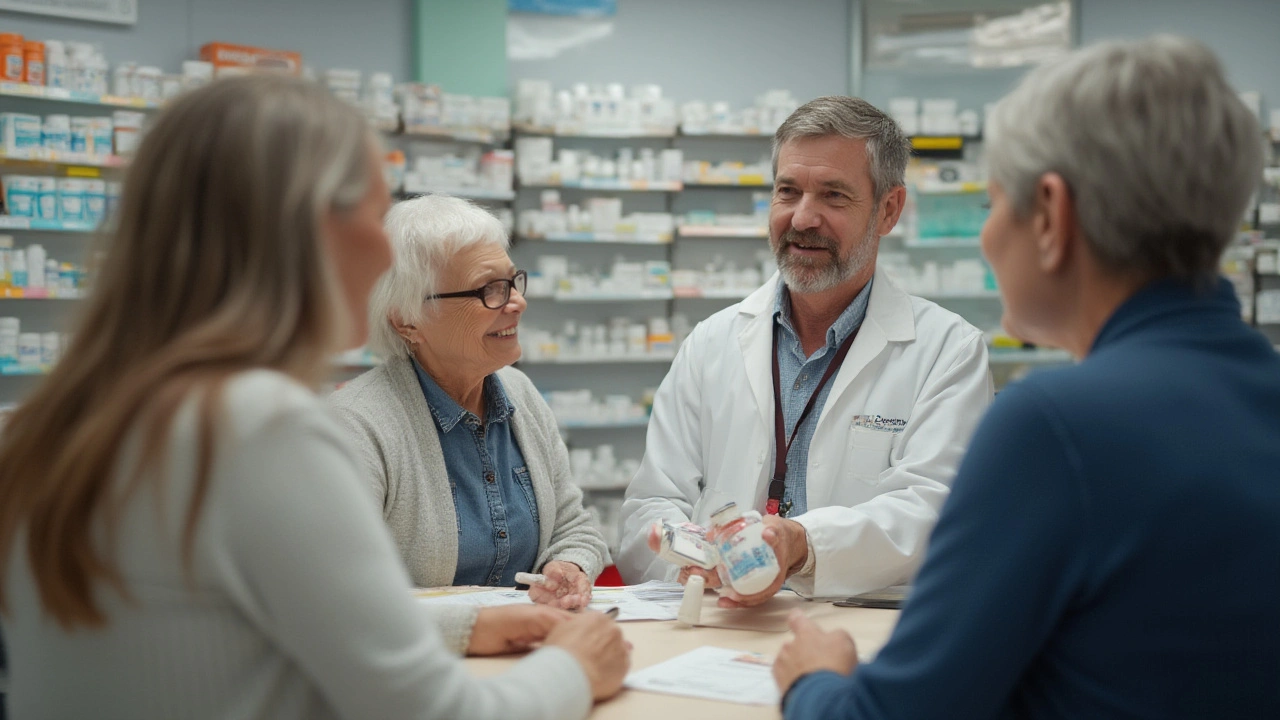Bacterial Infections: What They Are and How Repurposed Drugs Can Help
Ever wonder why a simple sore throat sometimes turns into a full-blown fever? That's often a bacterial infection at work. Bacteria are tiny organisms that can invade our bodies, multiply, and cause illness. Unlike viruses, they respond to antibiotics, but thanks to drug repurposing, old medicines are finding new life fighting these bugs.
Common Types and Everyday Signs
Most people recognize strep throat, urinary tract infections, and pneumonia as classic bacterial problems. Strep shows up as a painful throat, fever, and swollen glands. A UTI brings burning when you pee, urgency, and sometimes lower‑back pain. Pneumonia can start with a cough, chills, and shortness of breath. If you notice sudden fever, localized pain, or swelling that doesn’t improve in a few days, it’s worth getting checked for a bacterial cause.
Kids are especially prone to ear infections and sinus infections, both of which are usually bacterial. In adults, skin infections like cellulitis appear as red, warm, tender areas that spread quickly. Recognizing these patterns helps you decide when to see a doctor and get the right treatment.
Why Repurposed Drugs Matter
Traditional antibiotics—penicillin, amoxicillin, ciprofloxacin—are still first‑line choices. But bacteria are getting smarter; resistance is on the rise. That’s where drug repurposing steps in. Scientists are testing medicines approved for other uses to see if they can knock out stubborn bacteria.
Take azithromycin, for example. Originally a broad‑spectrum antibiotic, it’s now being studied for its anti‑inflammatory properties in conditions like chronic lung disease. Isoniazid, a TB drug, is being looked at for its potential against non‑TB bacteria. Even ivermectin, best known for treating parasites, has shown in‑lab activity against some bacterial strains.
These findings matter because they expand our toolbox without waiting years for brand‑new antibiotics. If a drug you already know is safe and effective for a new infection, doctors can prescribe it faster, and patients get relief sooner.
On Repurposed Pills, you’ll find practical guides on how to buy these medicines safely online—whether you need generic azithromycin for a respiratory infection or a legitimate source for ivermectin if your doctor recommends it for an off‑label use. We break down price checks, pharmacy verification, and red‑flag signs to avoid scams.
What should you do if you suspect a bacterial infection? First, get a proper diagnosis—most doctors will order a swab or urine test to pinpoint the culprit. Then, discuss treatment options. If standard antibiotics aren’t working, ask whether a repurposed drug could be an alternative. Never self‑medicate without a prescription; antibiotics misuse fuels resistance.
Prevention is also key. Hand washing, staying up to date on vaccines (like the pneumococcal vaccine), and avoiding close contact when someone is sick can cut down your risk. For people with chronic conditions, regular check‑ups help catch infections early before they spread.
In short, bacterial infections are common but manageable. Understanding the signs, getting the right diagnosis, and being aware of new treatment avenues—like repurposed drugs—keeps you a step ahead. Browse our tagged articles for deeper dives into specific antibiotics, safety tips for online purchases, and the latest research on drug repurposing. Stay informed, stay healthy.
Bacterial Infections in Kids: Guide for Parents & Caregivers
A friendly, science-driven guide simplifying bacterial infections for parents, helping families spot symptoms early and understand when to seek care.
Zyvox: Dosage, Uses, Side Effects, and Essential Guide for Patients
Curious about Zyvox? Discover how this powerful antibiotic works, what it's used for, tips on usage, and learn about possible side effects and precautions.

